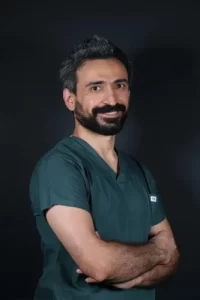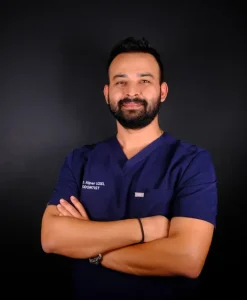Restorative Dentistry
Welcome to MFS Dent, your reliable resource for thorough restorative dentistry solutions. We are committed to improving your dental health and restoring your smile at MFS Dent.Restorative dentistry procedures are our area of expertise, and they may significantly improve your oral health and general well-being. Our restorative dentistry procedures may help you whether you want to fix broken teeth, treat tooth rot, or replace missing teeth. Explore the many aspects, advantages, and more of dental restoration۔
What Is Restorative Dentistry?
A subspecialty of dentistry called restorative care aims to identify, manage, and resolve oral health problems brought on by broken or missing teeth. Its main objective is to restore the teeth’s structure, function, and aesthetics while also enhancing the patient’s general oral well-being and standard of life.
Dental fillings to fill cavities, dental crowns to cover and preserve broken teeth, dental bridges to replace missing teeth, and implants as a more long-term tooth replacement option are all included in the field of restorative dentistry. Additionally, it includes remedies for more complex dental issues, such as root canal therapy to cure infestations as well as dental veneers to improve the look of teeth.
In order to produce results that seem natural while also guaranteeing that the repaired teeth function correctly in biting, eating, and speaking, restorative dentistry treatments often integrate both form and function. Restorations may now be made that are more resilient, long-lasting, and visually beautiful because of modern improvements in materials and procedures.
Overall, restorative dentistry is essential for maintaining oral health since it may fix or replace lost or damaged teeth, leading to a happier, brighter smile.
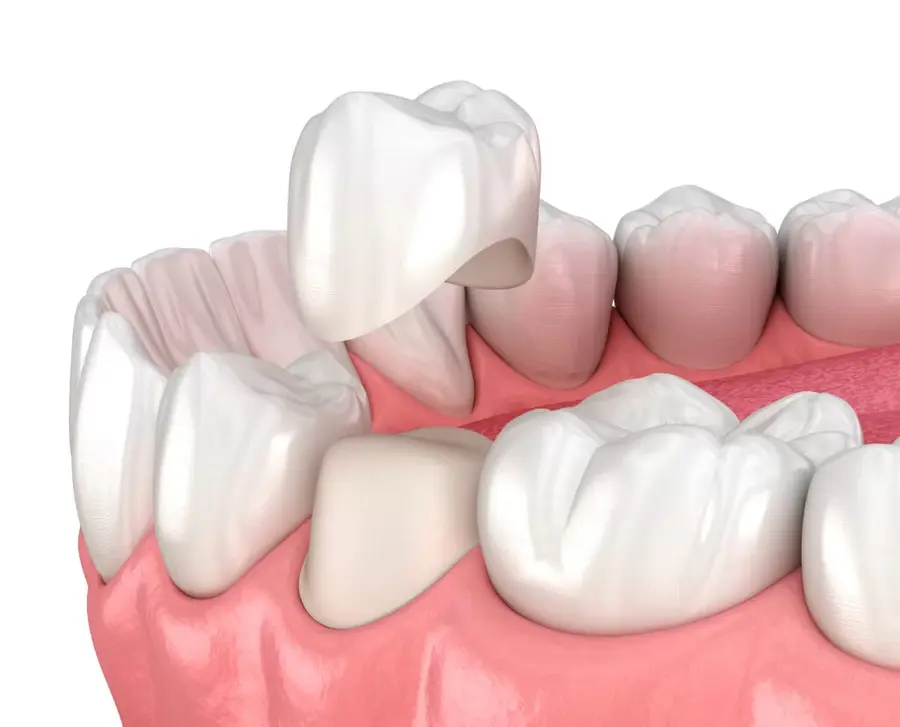
Who Needs Restorative Dentistry?
Anyone looking to restore their smile’s charm and their oral health must turn to restorative dentistry. Restorative dentistry procedures may help you regain your oral functioning and improve your look if you have harmed, decaying, or missing teeth. At MFS Dent, our devoted staff of restorative dentists is ready to provide individualized solutions to match your particular requirements. Restorative dentistry may treat a variety of dental problems in patients of all ages and pave the path towards a happier, healthier you.
What’s the Difference between Restorative Dentistry and Cosmetic Dentistry?
Two independent subfields of dentistry, concentrating on various aspects of oral health and aesthetics, are dental restoration and cosmetic dentistry. Although they both aim to improve a patient’s smile and general oral health, their main aims, methods of treatment, and areas of concentration are different.
The main focus of restorative dentistry is on fixing and restoring the functioning of teeth that have been lost, decayed, or damaged for a variety of causes, including trauma, illness, or decay. Through the use of procedures including dental fillings, crowns, bridges, implants, and dentures, this area seeks to solve difficulties with oral health. Restoring the strength, structure, and functionality of teeth with restorative dentistry procedures can improve chewing, speaking, and overall oral health.
The goal of cosmetic dentistry, on the contrary, is to improve a patient’s smile’s aesthetic appeal. It encompasses elective operations aimed at enhancing the aesthetics of the gums, teeth, and overall face harmony. Cosmetic dentistry procedures include Invisalign or braces, veneers, dental bonding, gum contouring, and teeth whitening. These procedures are often carried out to give patients a more appealing smile and increase their self-confidence.
While both aesthetic and restorative dentistry improve a patient’s oral health, restorative dentistry focuses largely on functional problems and health issues, with the goal of restoring correct dental function. Cosmetic dentistry, on the other hand, places more of an emphasis on aesthetic enhancements than on necessary treating underlying health issues.
It’s crucial to keep in mind that many dentists may be skilled in both restorative and cosmetic treatments, and they often develop individualized treatments that include components of both disciplines to obtain thorough results. In order to choose the best course of treatment based on their unique requirements and objectives, people seeking dental care should speak with a certified dentist.
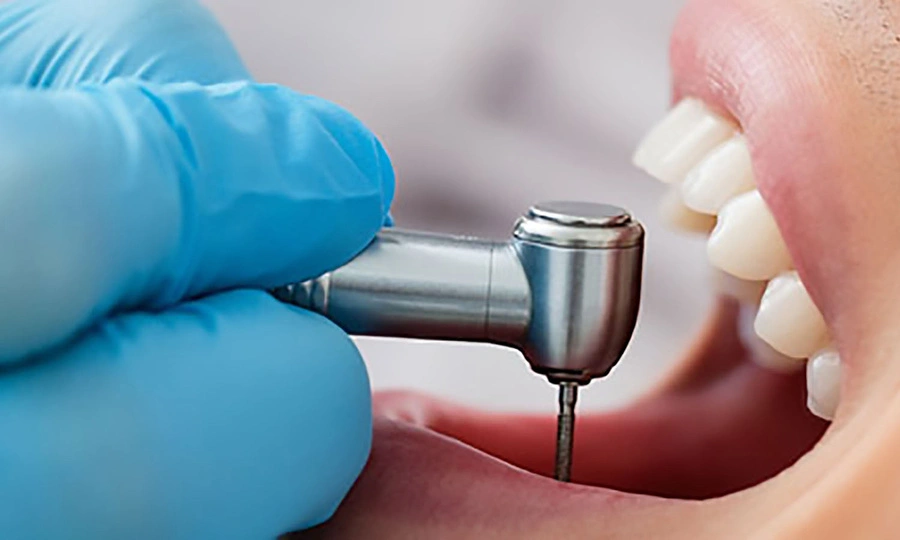
What Are the Advantages of Restorative Dentistry?
Numerous benefits are provided by this specialist area of dentistry, which support both general wellness and good dental health.
1. Enhanced Oral Functioning
Dental fillings, crowns, bridges, and dentures are examples of restorative dental procedures that assist patients regain optimal bite alignment, chew comfortably, and speak clearly.
2. Improved Aesthetics
In addition to addressing functional problems, restorative treatments also enhance the aesthetics of teeth. Dental implants and veneers are two procedures that may considerably improve the smile, increasing one’s self-confidence and self-esteem.
3. Conservation of Natural Teeth
The goal of restorative dentistry is to preserve and restore damaged or destroyed teeth wherever possible. This method keeps the structure of the natural teeth intact, which is important for preserving oral health and averting subsequent issues.
4. Avoidance of Further Damage
The spread of oral diseases may be stopped by swiftly treating dental problems with restorative procedures. This preventative strategy may assist in preventing future, more involved, and expensive procedures.
5. Customized Solutions
In order to best serve each patient’s requirements, restorative dentistry provides individualized treatments that take into consideration the patient’s dental health, preferences, and objectives.
6. Specialized Expertise
Dentists who specialize in restorative dentistry go through additional training to ensure they have the expertise and skills needed to provide efficient and thorough treatment.
7. Diverse Treatment Options
The practice of restorative dentistry offers a variety of treatment options, from easy fillings to complicated implant procedures, to address a range of oral health problems.
8. Long-term Durability
Since many restorative dentistry procedures are strong and long-lasting, patients may benefit from their improved oral health for many years to come.
What Are the Types of Dental Restoration?
Dental restorations include a range of procedures designed to fix and improve the structure, functionality, and appearance of teeth. These include of dental implants for tooth restoration, bridges to replace teeth that are missing, crowns to repair damaged teeth, and fillings to treat cavities. Specialized operations carried out by dentists with experience in this area make up restorative dentistry. It is essential for sustaining both general and oral health. Fillings, crowns, bridges, and implants are common restorative procedures, and experts in restorative dentistry ensure that patients get excellent, individualized care. These therapies help to expand the scope of dental specialties and the complete restorative dental practice.
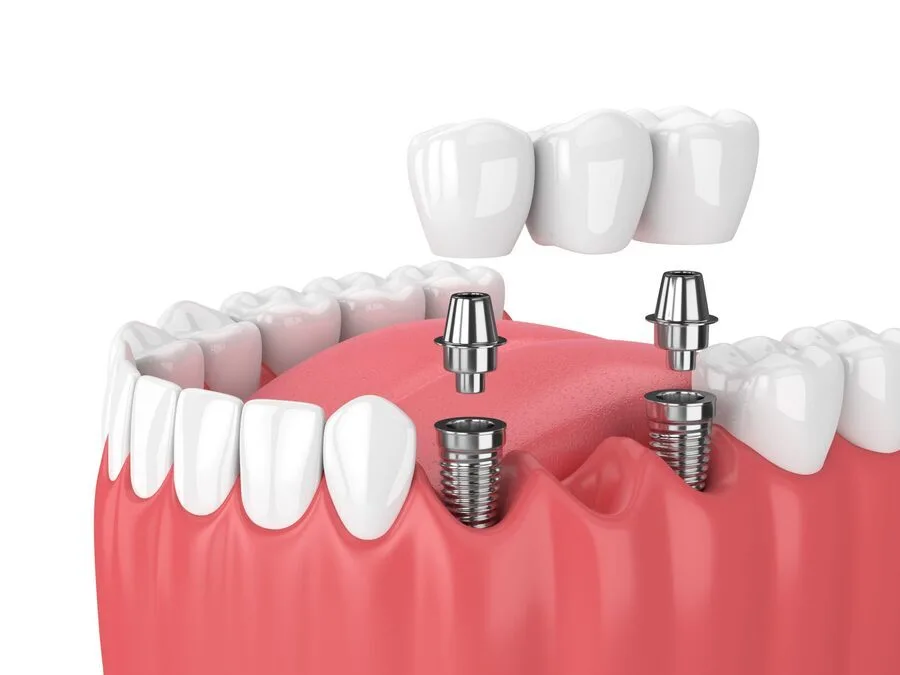
What Are the Risks of Restorative Dentistry?
The goal of restorative dentistry is to improve the functioning and aesthetics of teeth, although there are hazards involved. Possible problems include:
1. Infection
If adequate sterilization is not kept up, procedures like dental implants or fillings might introduce pathogens.
2. Allergic responses
Some materials, such as composite resins or metals, may cause allergic reactions.
3. Nerve damage
During operations, teeth’s nerves may be affected, resulting in sensitivity or discomfort.
4. Inadequate fit
Restorations that are not properly fitted may cause pain and affect biting alignment.
5. Failure
Restorations have a chance of breaking, moving, or failing, demanding more care.
6. Color mismatch
Restorations may not exactly match the color of your teeth.
7. Sensitivity after therapy
After treatment, teeth may become more sensitive to pressure or cold.
For thorough advice and treatment, see a restorative dental expert.

